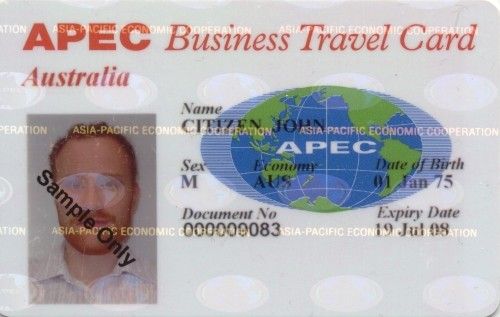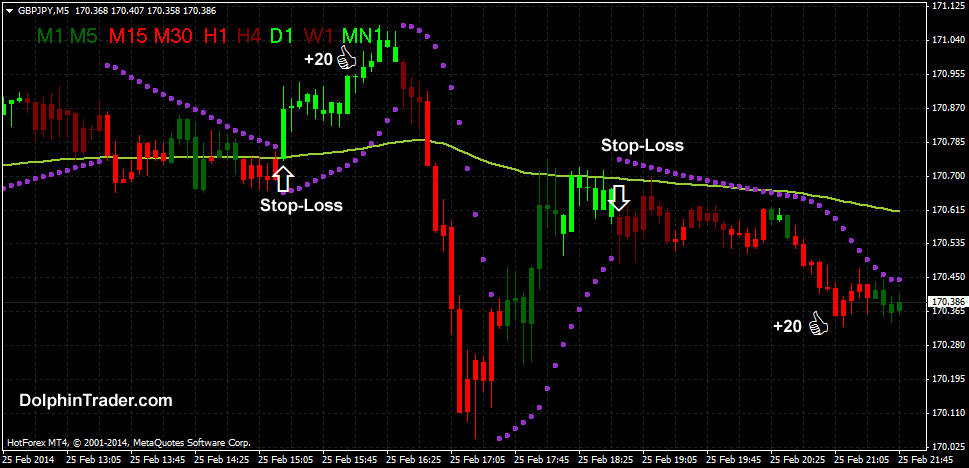define endorsement

(iii) Sans Frais Endorsement– In this kind of endorsement an endorser does not want the endorsee or any holder of the instrument to incur any expense on his account. Due to her advanced age she normally doesn’t handle her own finances but a few days ago she had to issue a check for one of her grandsons to help him with certain payment. She signed the check properly but his grandson endorsed it with just his signature. The information in this document was developed with reasonable care and attention. However, it is possible that some of the information is incomplete, incorrect, or inapplicable to particular circumstances or conditions. There might be a dollar amount limit to this service or a hold on the funds for longer than normal, but some banks will do it.
- Cashing a check rather than depositing it when you endorse it typically involves providing the bank with acceptable ID to prove that the check is written to you.
- (ii) Facultative Endorsement– An endorser in such type of endorsement expressly gives up some of his rights under the negotiable instrument.
- A negotiable instrument holder may endorse the instrument by signing his or her name on the reverse of the document, which mimics the transfer of ownership of the instrument.
- Due to her advanced age she normally doesn’t handle her own finances but a few days ago she had to issue a check for one of her grandsons to help him with certain payment.
- Restrictive endorsements are commonly used to settle debt since they protect the debtor from future disputes with the creditors.
Banks act as a go-between, ensuring that the beneficiary has average satisfaction funds. For instance, in the event of a banker’s approval, a bank endorsement is the equivalent of something like a promise. A banking institution would not offer a banker’s acceptance unless it has a realistic possibility of being able to provide all the cash as requested. This Endorsement in banking seems to be an assurance from banks that this would honour a check and perhaps another negotiable instrument by one of its clients, including a banker’s approval. It guarantees any third party that perhaps the bank would support the creator of something like the instrument’s commitments if the creator cannot pay.
What is a Restrictive Endorsement?
A bank will not provide a bank endorsement unless it can verify that both parties are trustworthy. Our Coachella Valley corporate attorneys law firm guides you through every step of the process to understand the banking law. Linda’s and Mary’s case requires restrictions to protect the check from being cashed out by the wrong people or for purposes other than the one specified. Therefore, Ram having been relegated by the second endorsement to his original position, cannot sue Bala, Kala, and Lala. Where an endorser so excludes his liability and afterwards becomes the holder of the instrument, all the intermediate endorsers are liable to him. For example, Ram, the holder of a bill endorses it to Bala, Bala endorses to Kala, and Kala to Lala, and endorses it again to Ram.
Federal Trade Commission Updates Endorsement Guides and … – JD Supra
Federal Trade Commission Updates Endorsement Guides and ….
Posted: Thu, 06 Jul 2023 07:00:00 GMT [source]
This signature is written before the check is transferred to the payee’s bank. For example, a “for deposit only” endorsement ensures that the payee’s bank must deposit the funds into the payee’s account. If the endorsement is a blank endorsement (such as when it is made payable to Cash), the check becomes a negotiable instrument and can then be used by any other party. There are several types of endorsements that may be applied to a check, as noted next.
The Uniform Commercial Code Recognizes Five Kinds of Endorsements
An American wine-importing business may issue a banker’s acceptance with a date beyond that when South African wine cases are expected to be delivered. This allows the South African exporting business to have a payment instrument in hand before finalizing a shipment, helping to smooth any obstacles within such an international deal. These could include disparate regulations, language barriers, and/or variances in infrastructure. For instance, you can pay Ken Smiles upon satisfying his contract performance. When the endorsement is conditional, the required party pays the endorsee even if the condition is not yet fulfilled. Using restrictive endorsement is appropriate when the check is to be mailed to the bank, and the payee would not be physically handling the check.

Mary claimed that she did not receive funds indicating full settlement for the goods. Linda insisted she had issued a check in a blank, which allowed cashing out or depositing into the account. A endorses it in the blank, and it comes into the hands of B, who simply delivers it to C. Here, D, as the holder does not derive his title through the forged endorsement of B, but through the genuine endorsement of A. Thus, he can claim payment from any of the parties in spite of the intervening forged endorsement. The holder obtains his title independently of the fake endorsement, however, where the instrument is a bearer instrument or has been endorsed in blank.
Restrictive Endorsement Examples
A bill made payable to Ram or order, and endorsed “pay to the order of Shyam” would be specially endorsed and Shyam endorses it further. We can turn a blank endorsement into a special one by adding an order making the bill payable to the transferee. Consult your bank and the organization receiving the check to find out how to write an FBO check for them. This can get tricky if the bank requires both signatures and the person receiving the benefit of the check is incapacitated and cannot endorse it. A special endorsement is the signature of the endorser, as well as the name of the person to whom the instrument is to be paid (such as “Pay David Andrews”). A special endorsement creates order paper, which requires endorsement and delivery for its negotiation.
When the code is payable to Ken Smiles, the general endorsement only requires a signature. In case of theft, the owner can convert this endorsement to a special approval. An endorsement is typically made on the back of the instrument and may include instructions or conditions for the transfer. The person who endorses the instrument is known as the endorser, and the person to whom the instrument is endorsed is known as the endorsee.
EFFECTS OF ENDORSEMENT
In this context, we shall learn about the various ways that legal endorsement of instruments is carried out. If the seller agrees to this type of bank endorsement, the buyer, or importer, has their bank issue a letter of credit to the seller on behalf of the buyer’s bank. Then, once the goods have shipped, the seller can present their documents to the issuing bank and collect payment. A letter of credit is similar to a banker’s acceptance in that a bank will guarantee an exporter payment for goods or services in the event that payment isn’t made on time or for the right amount.

This is the least secure way to endorse a check, but it’s the most common. You do a blank endorsement by simply signing your name on the back of the check. Then, when you’re at the bank, you tell the teller if you want to cash it or deposit it.
An endorsement in banking is a sign or even a similar stamp that authorises payment, a transfer of money, or another financial transaction in commercial or legal concerns. Let’s look at a transaction that might require a bank endorsement. Imagine that you own a car dealership in the U.S. and want to purchase 500 cars online from a European wholesaler. You both agree on a price and that the payment will be sent via a check. However, since you don’t have a history with the seller, they may request you get a bank endorsement of the check. This guarantees the seller that they will receive payment for the cars whether you can meet the financial obligation or not.
Important Forms
This endorsement is signed on the back of the bill, note or check transferring restrictions to whomever is receiving the paper. It confers rights upon the endorsee to receive instrument’s payments, bring any endorsement meaning in banking action arising from the endorser or transfer the rights of the endorser as authorized by the endorsement form. James conducts business with David and endorses a check in blank to David to settle for payment.
Unlike the restrictive endorsement, the person whose name has been specified on the check can endorse it to be transferred freely to other parties. In banking, a restrictive endorsement is the type of endorsement whereby the financial instrument or a check is limited to use by the payee (receiver). The restrictions or constraints highlighted on the check create the limitation placed on a restrictive endorsement. An example restriction would be “pay to the order of the bank” or “For Deposit Only.” Such can be followed by the business name or the payee’s account number. In the cases of companies, such negotiable (check) instruments are endorsed by stamping at the back. Indicating “For Deposit Only” and stamping the check implies that the payee can only deposit the cash in their bank account, but not cash it out nor use the check for any other action.
- An authorized bank employee must then stamp the draft as “accepted” and sign it before the draft becomes the total liability of the bank.
- Therefore, Ram having been relegated by the second endorsement to his original position, cannot sue Bala, Kala, and Lala.
- As a result, we can conclude that an endorsement facilitates the transfer of property to another person or legal body.
- It ensures that the bank will fully back a negotiable instrument made by one of its customers in a third-party transaction.
This type of bank endorsement leaves behind a digital and paper trail that can be traced should any issues arise with the cashing or proper posting of the check. Bank endorsements are commonly used in delayed-payment agreements that involve international trade. The agreement is typically between a buyer and a seller who do not have a previous working relationship. In this case, the seller wants to guarantee that they will receive payment from a buyer they do not know. A bank endorsement is a guarantee given by a bank or credit union. It ensures that the bank will fully back a negotiable instrument made by one of its customers in a third-party transaction.
For example, Seth Jones receives a check made out to him and writes his signature on the back of the check. George is now in possession of bearer paper, which only requires delivery for its negotiation. In the literal sense, a bank endorsement occurs when the bank stamps, signs, or uses some other form of authorization to guarantee that a negotiable instrument will be honored. So, in plain and simple terms, a bank endorsement is your bank’s promise to a seller that they will pay for something you purchased even if you can not. Bank endorsements are common in international trade where the business parties are typically unknown to each other.

An endorsement can be done by keeping another individual or an entity in a favorable position. Thus, we can say that an endorsement helps in the transfer of the property to another individual or a legal entity. When the endorser includes the name of the person at whose request the payment is to be made in addition to his mark, this is known as a special endorsement or full endorsement. The person named as the endorsee of the instrument, who has now become its payee and is eligible to suit for the money owed on the instrument, has a heading added by endorsement. Endorsements in banking are generally important in international trading when the participants in the transaction are usually strangers.
A bank endorsement works when a customer creates a negotiable instrument, such as a check. Then the customer gets the bank to guarantee that the funds will be paid to the recipient when the check is presented. For example, an importer may not want to pay an exporter in full before receiving goods and an exporter may not want to ship goods before being paid. So, as a solution, a bank serves as a middle party offering a guarantee to the exporter and accepting payment from the importer at a later date.


Leave a Reply